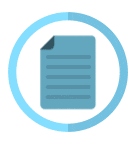The effectiveness of pre-questioning in teaching reading at SMPN 5 Pamekasan
Keywords:
reading comprehension, pre-questioning, reading techniqueAbstract
The general question of this research: do the students’ who taught by using pre-questioning technique has better achievement than the students’ who taught by using the traditional technique? The researcher used Quasi-Experimental design. Because the research conducted in a school situation, it is necessary to use groups as they are already organized into classes. Furthermore, both of the student groups are determined as Experiment Group (X) and Control Group (Y). Experiment group (VII-A class) is a group which taught by using the pre-questioning technique, while the control group (VII-B) is a group which taught by using conventional technique. The instruments used to collect data are pretest and posttest. After getting the result data, the researcher used ANCOVA to calculate it, the result of computed F value. The hypothesis testing showed that there is a significant difference in reading achievement between the students’ taught by using Pre-questioning technique and the students’ taught by using Conventional technique. The students’ who taught by using Pre-questioning technique have better achievement than the students’ taught by using the conventional technique. It was proved from the computation where computed F-value (16.668) was higher than the F-critical value (4.00) in 0.05 level of significance. It meant that Ha was accepted.
Downloads
Published
How to Cite
Issue
Section
License
1. Copyright of this journal is possession of Editorial Board and Journal Manager, by the knowledge of author, whilst the moral right of the publication belongs to the author.
2. Legal formal aspect of journal publication accessibility refers to Creative Commons Atribution-ShareAlike (CC BY-SA), implies that this license lets others remix, adapt, and build upon your work even for commercial purposes, as long as they credit you and license their new creations under the identical terms. This license is often compared to “copyleft” free and open source software licenses.
3. Every publications (printed/electronic) are open access for educational purposes, research, and library. Other that the aims mentioned above, editorial board is not responsible for copyright violation















